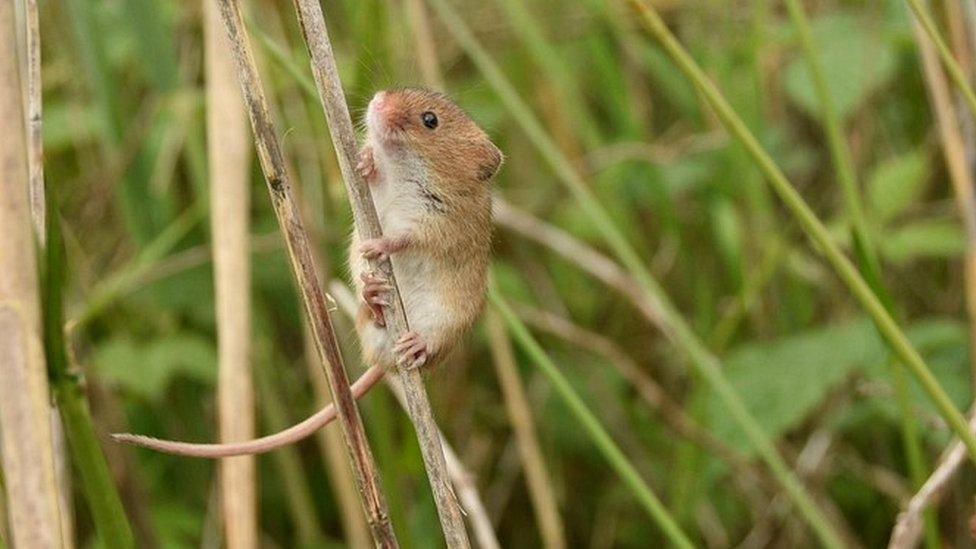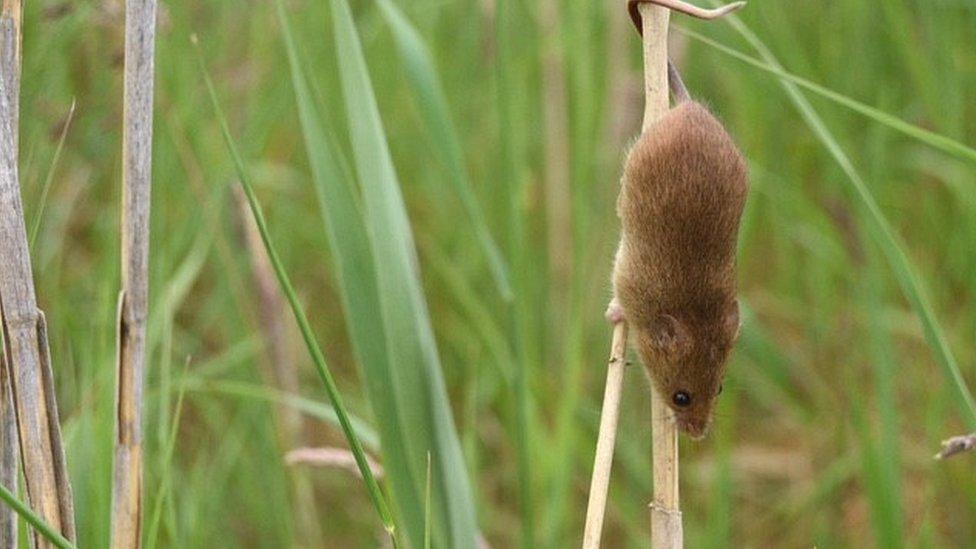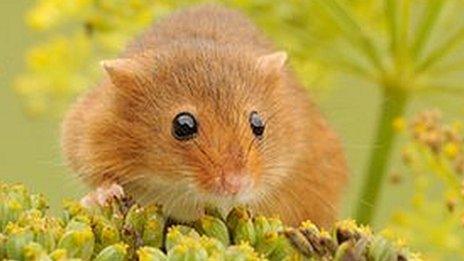Hundreds of harvest mice released to boost Northumberland colony
- Published

It is hoped the site will prove a successful breeding ground for the newly-introduced animals
Hundreds of harvest mice have been released into the wild to try to boost a Northumberland colony.
About 200 of the mice, which each weigh the same as a 10p coin, were set free at Northumberland Wildlife Trust's East Chevington reserve in Druridge Bay.
It is the second time they have been introduced to the area - 17 years ago 240 were released and the colony has survived to this day.
Their release was made possible by a large private donation.
It will reinforce what is one of the few harvest mouse colonies north of the River Tyne.
Duncan Hutt, director of conservation at the trust, said it was "fantastic" to see the mice getting out on site.

Their release was part of the Catch My Drift project, which is working towards the improvement of the land and habitat for people and wildlife on the Druridge Bay reserve
In 2004, Newcastle University PhD student Wendy Fall actively bred 240 harvest mice with the help of volunteers, schools and community groups.
The mice, which are Britain's smallest mammal, were released on the 185-hectare (457 acre) reserve as the extensive reed beds provide a suitable habitat.
The animals are expected to go on to build distinctive circular grass nests on tall plants, 3ft (90cm) from the ground.
There have been only a few records of a presence on the site since their release in 2004 - in 2019 two nests were discovered in two separate locations on the reserve, built by descendants from the originally-released mice.

Follow BBC North East & Cumbria on Twitter, external, Facebook, external and Instagram, external. Send your story ideas to northeastandcumbria@bbc.co.uk, external.
- Published22 January 2015
